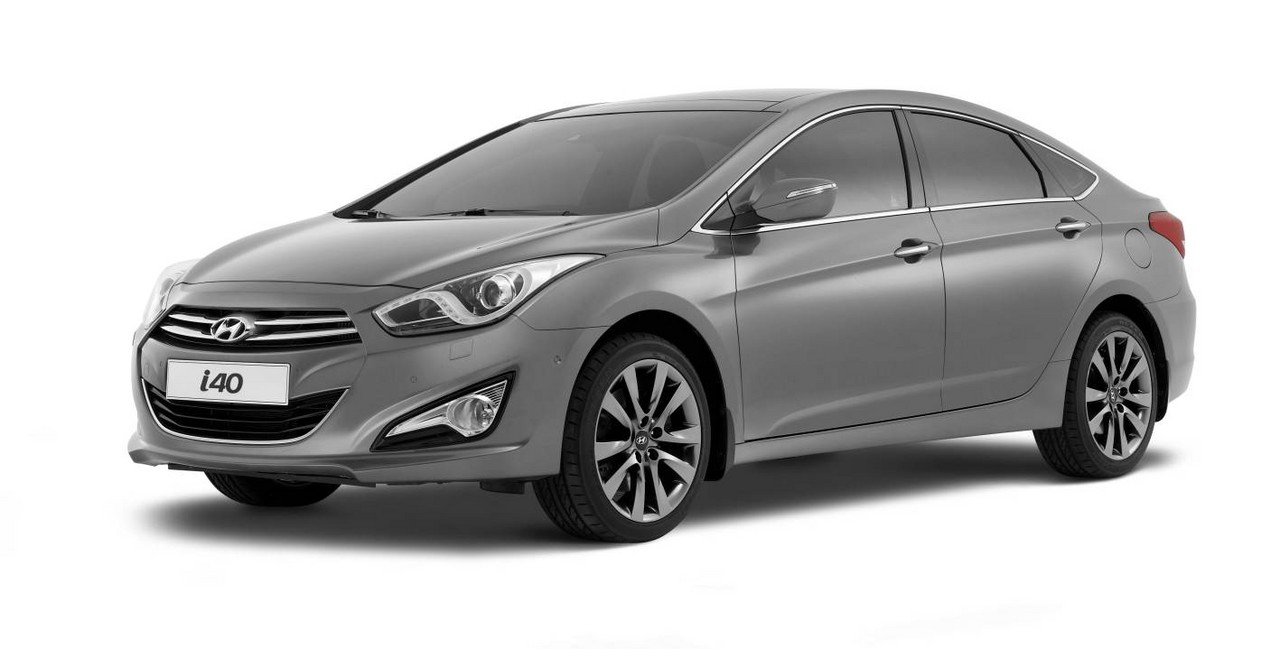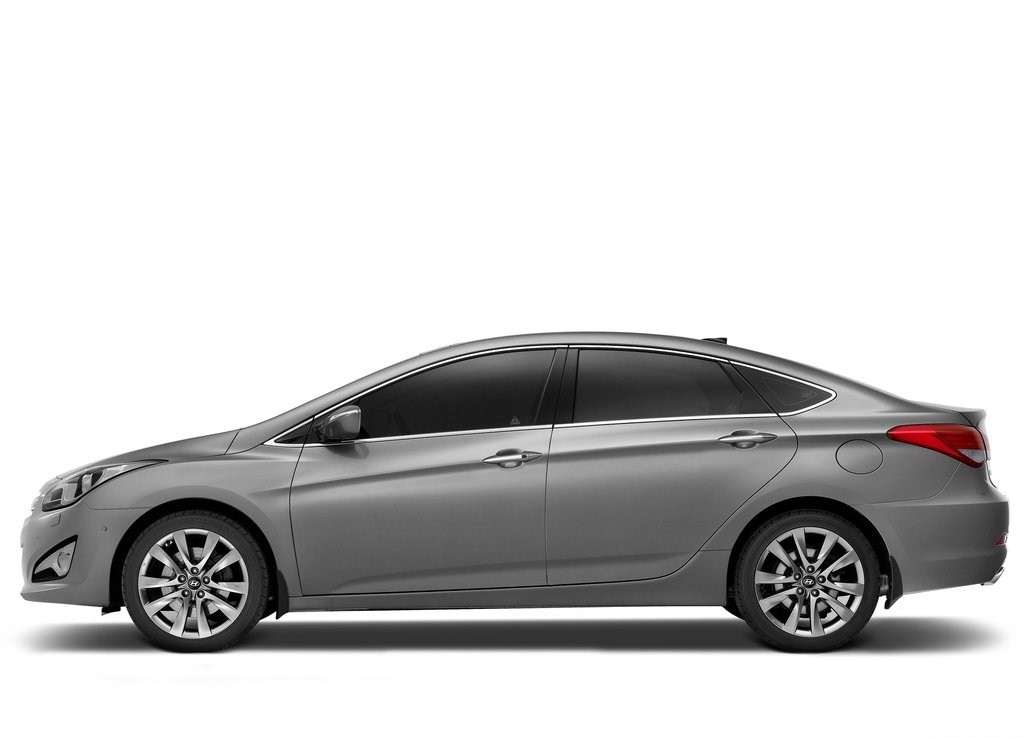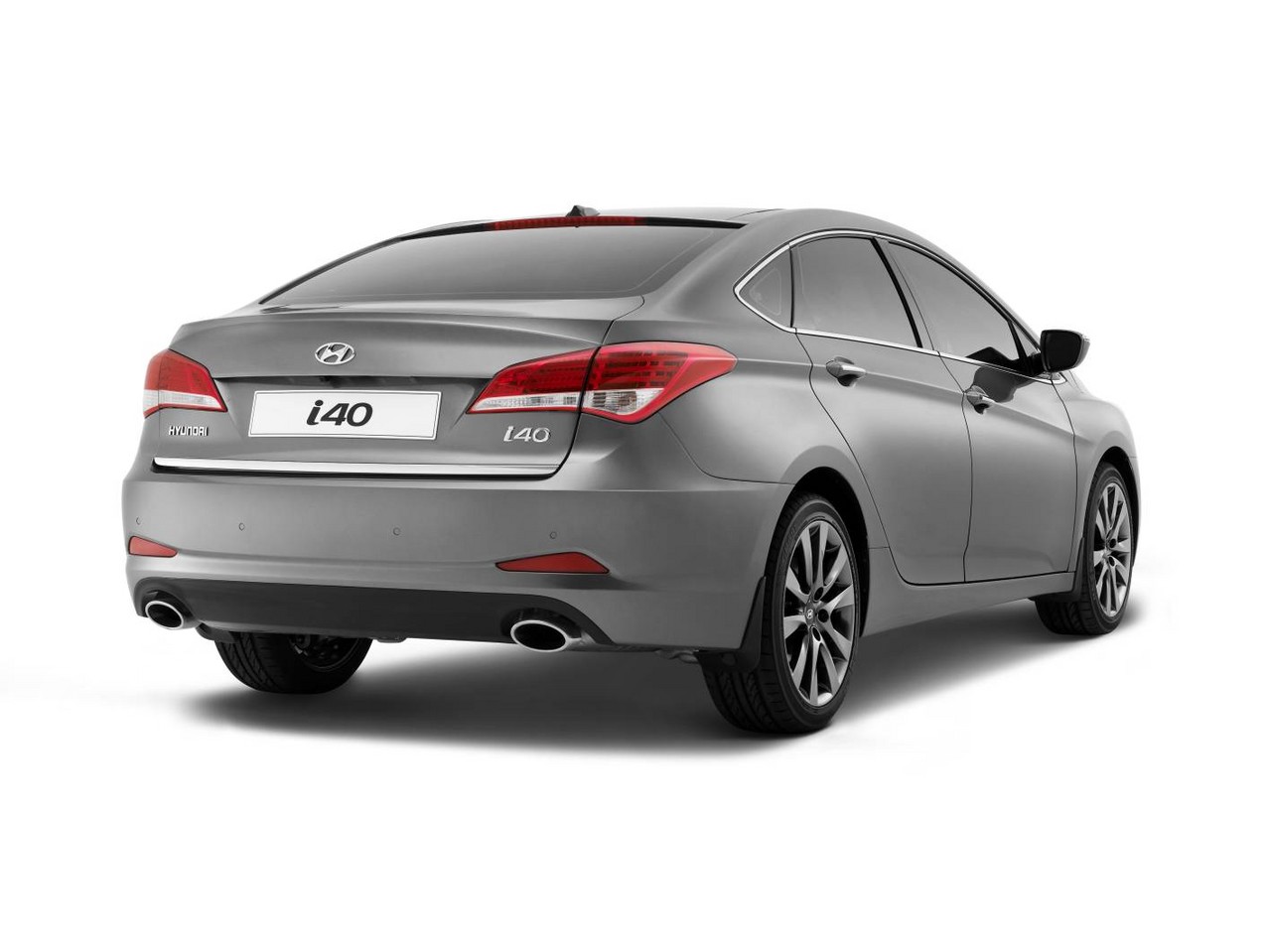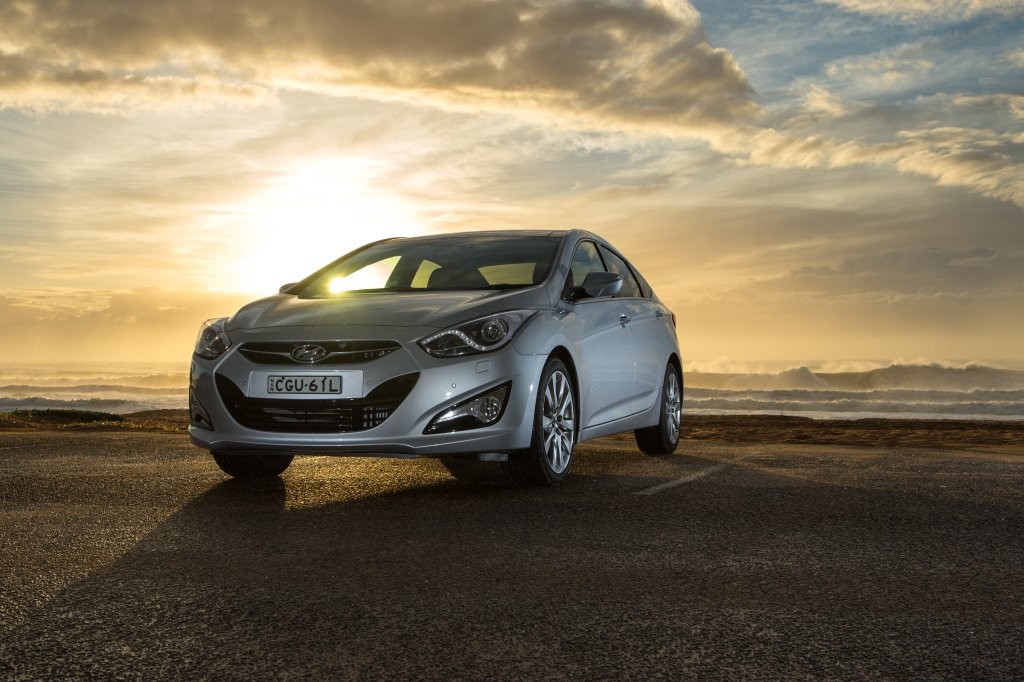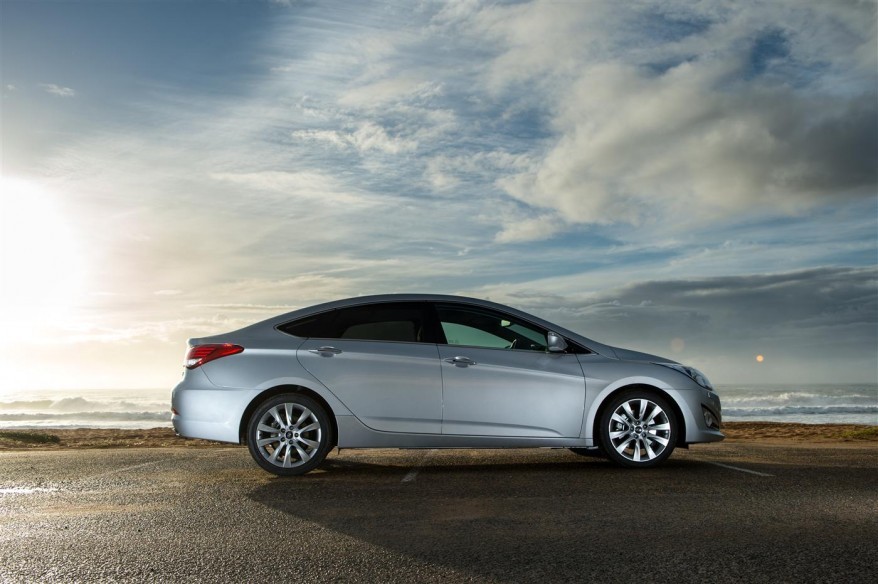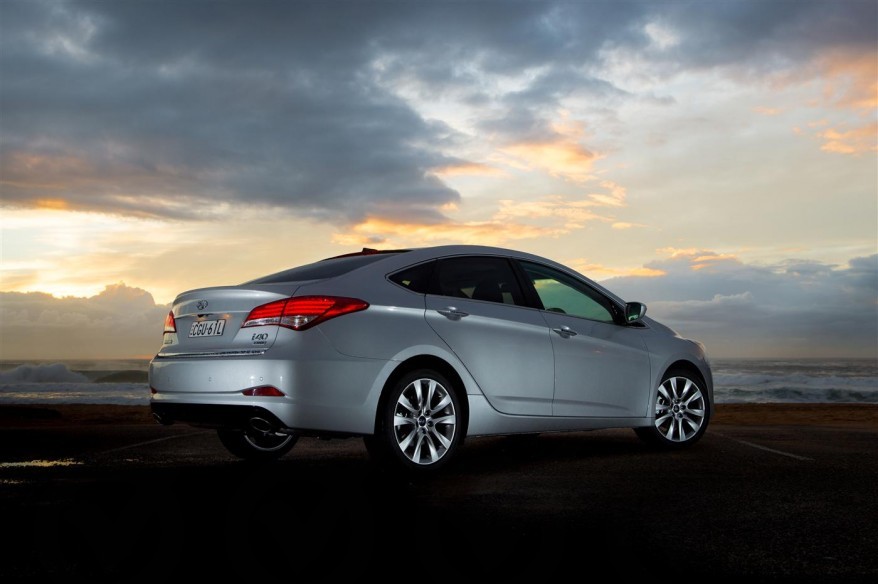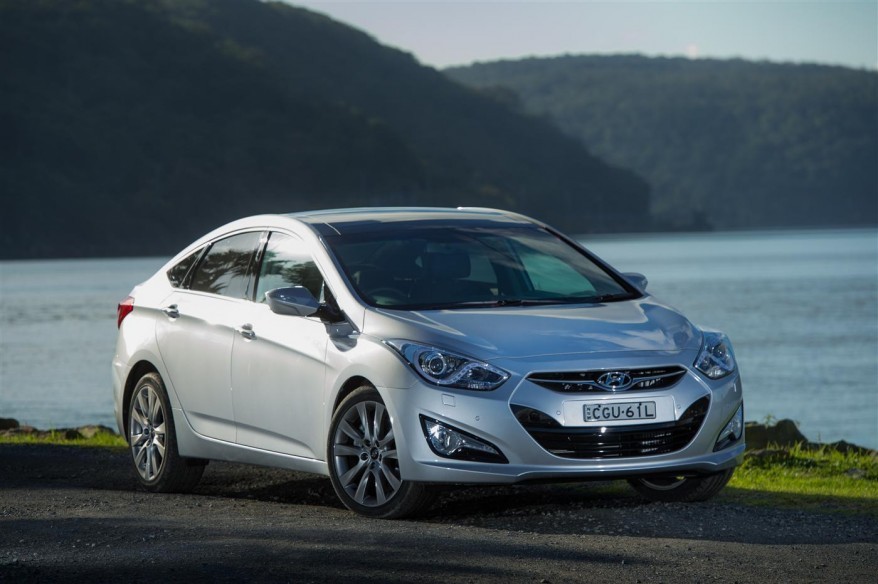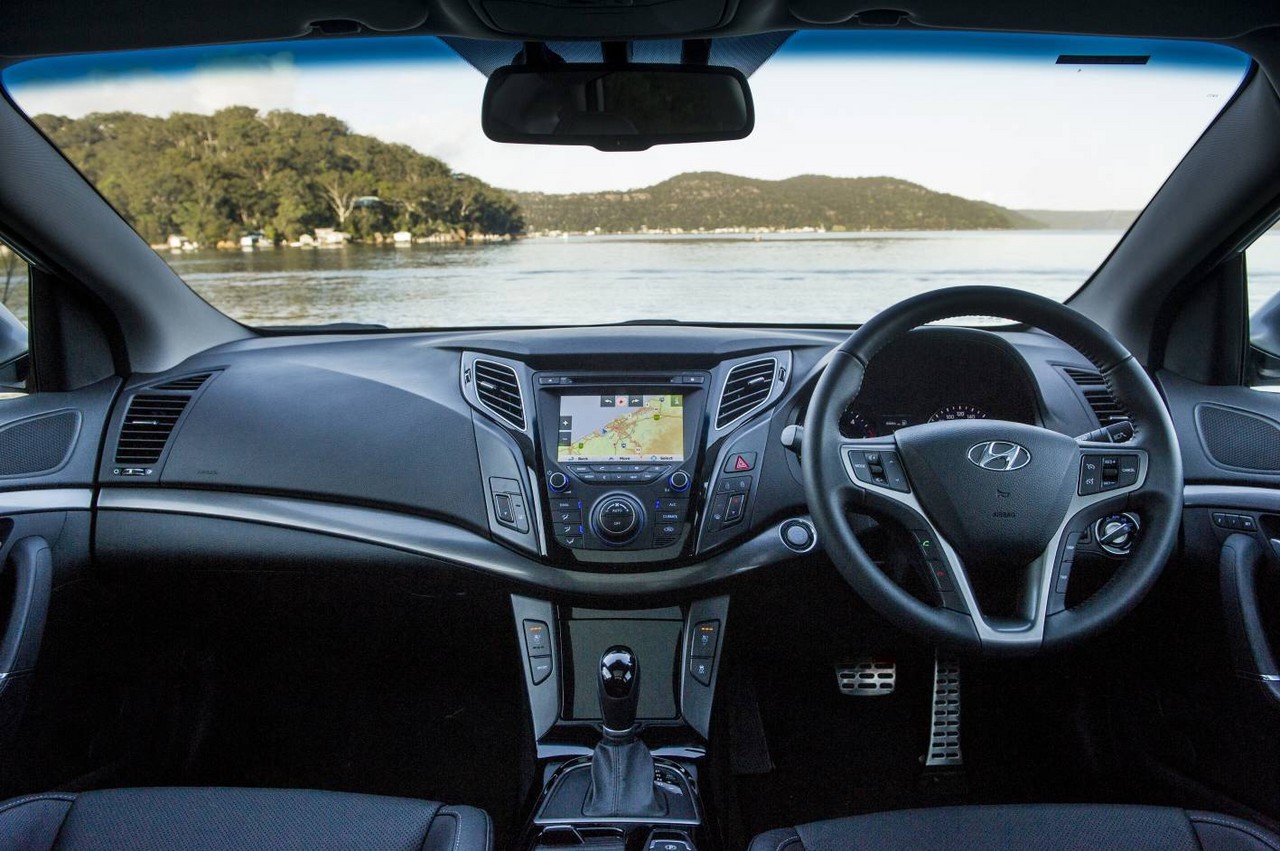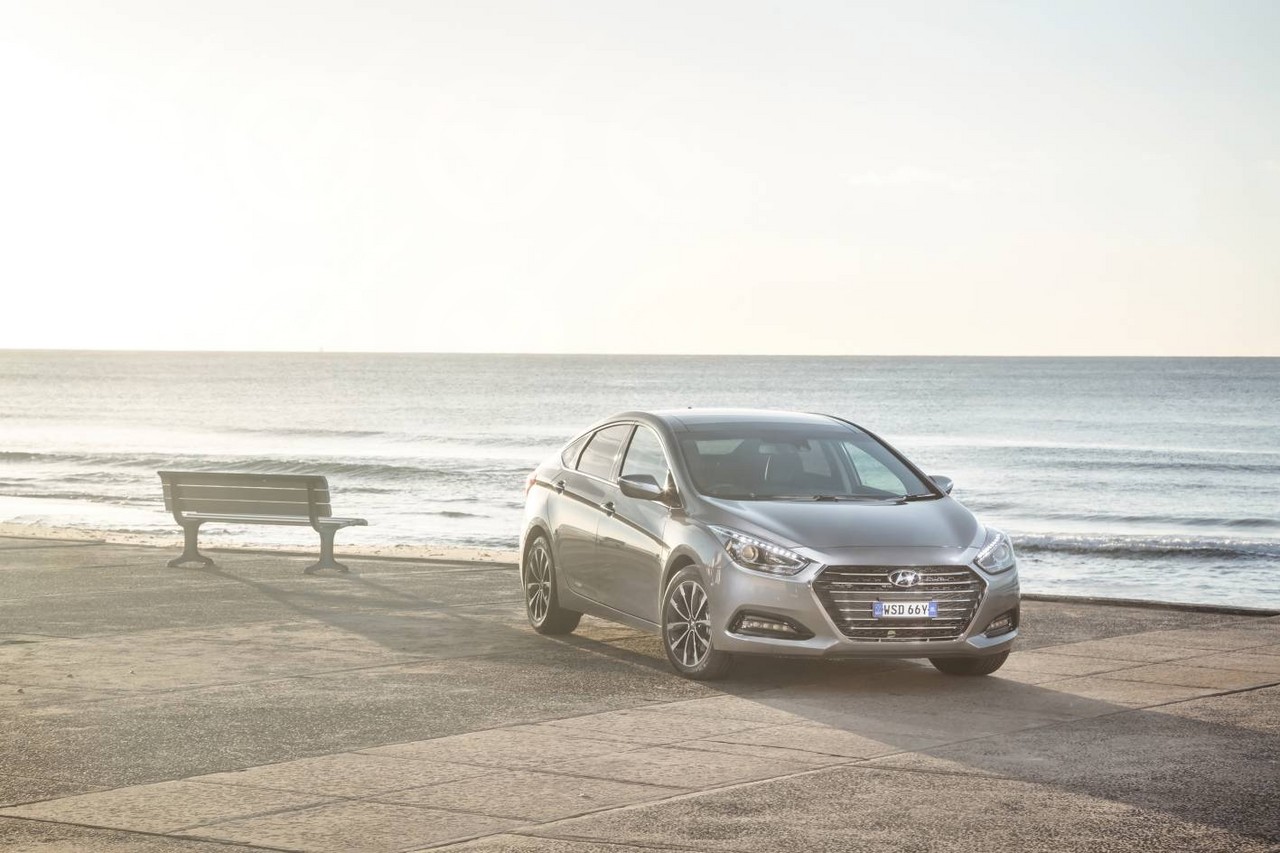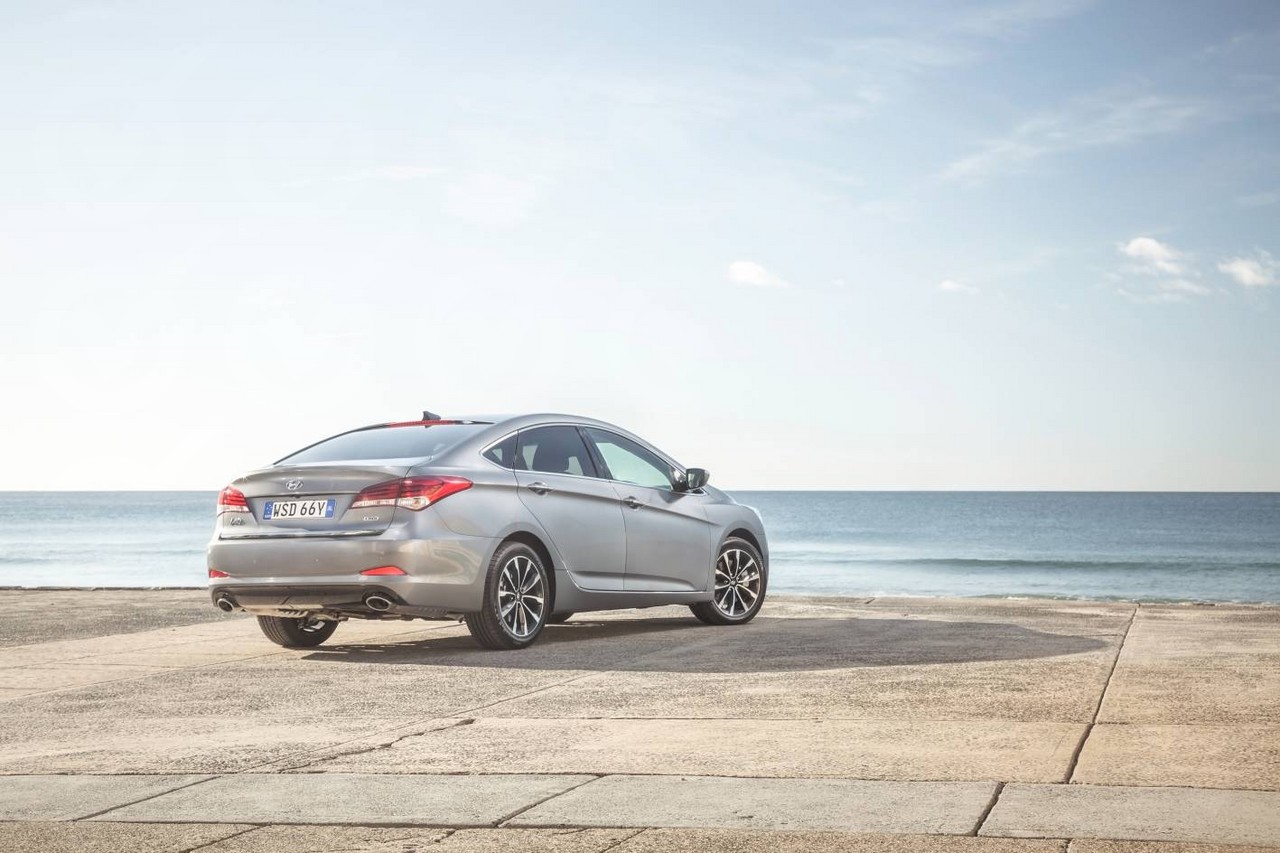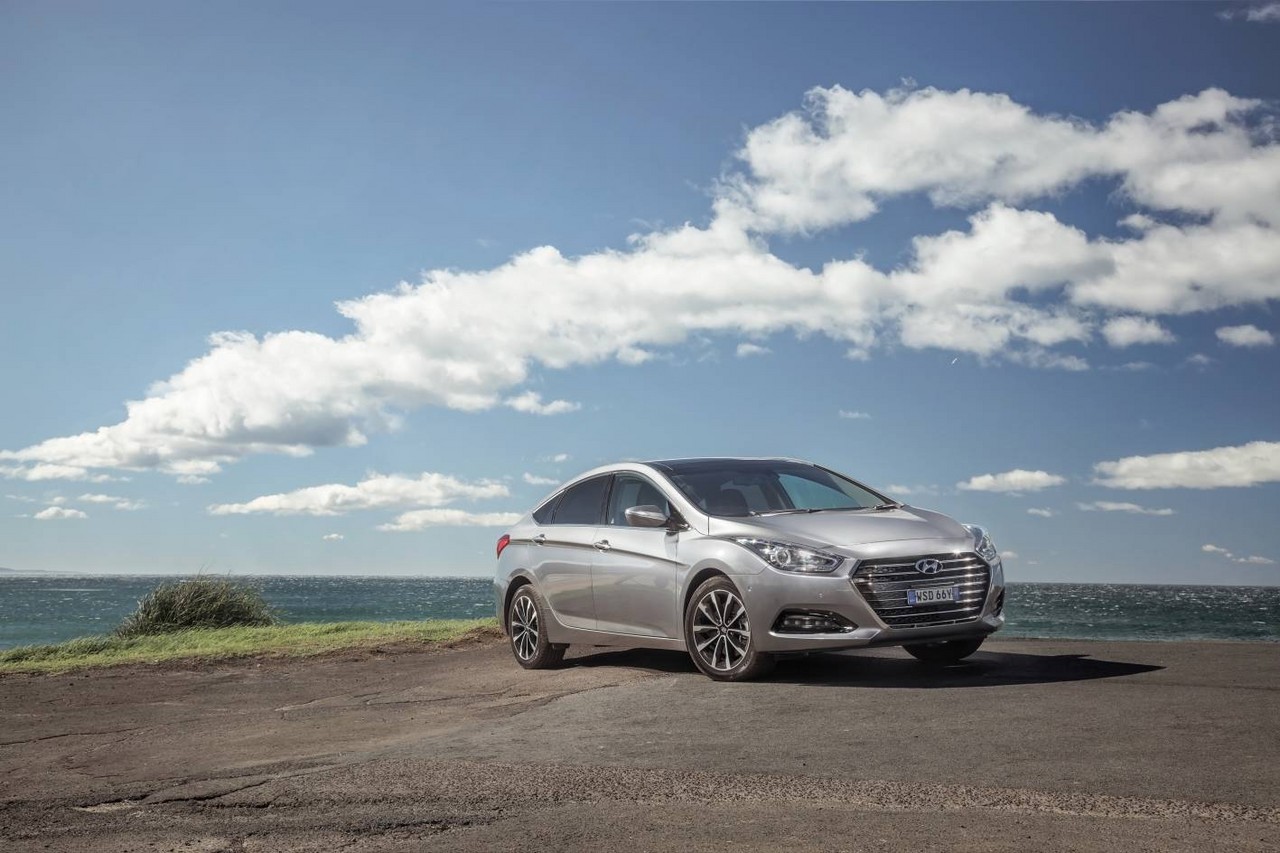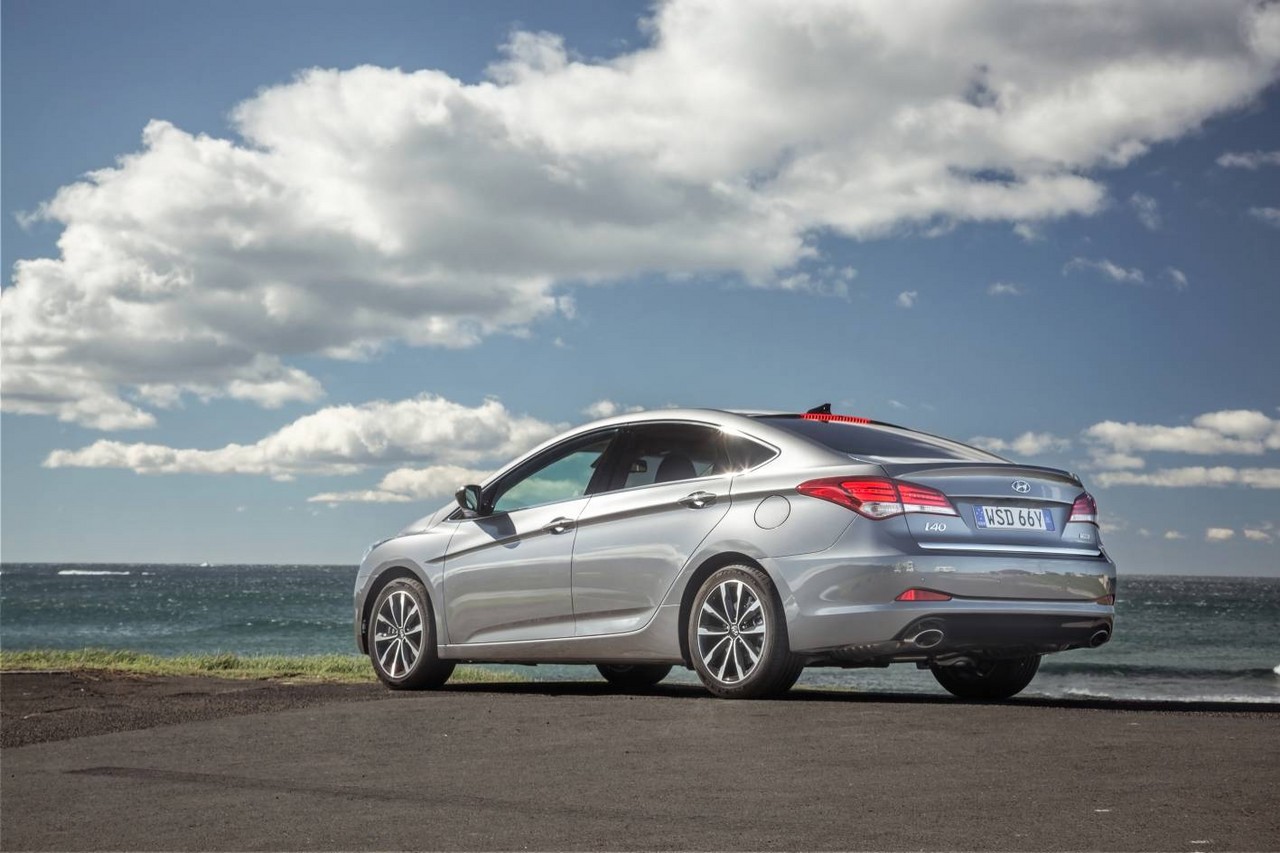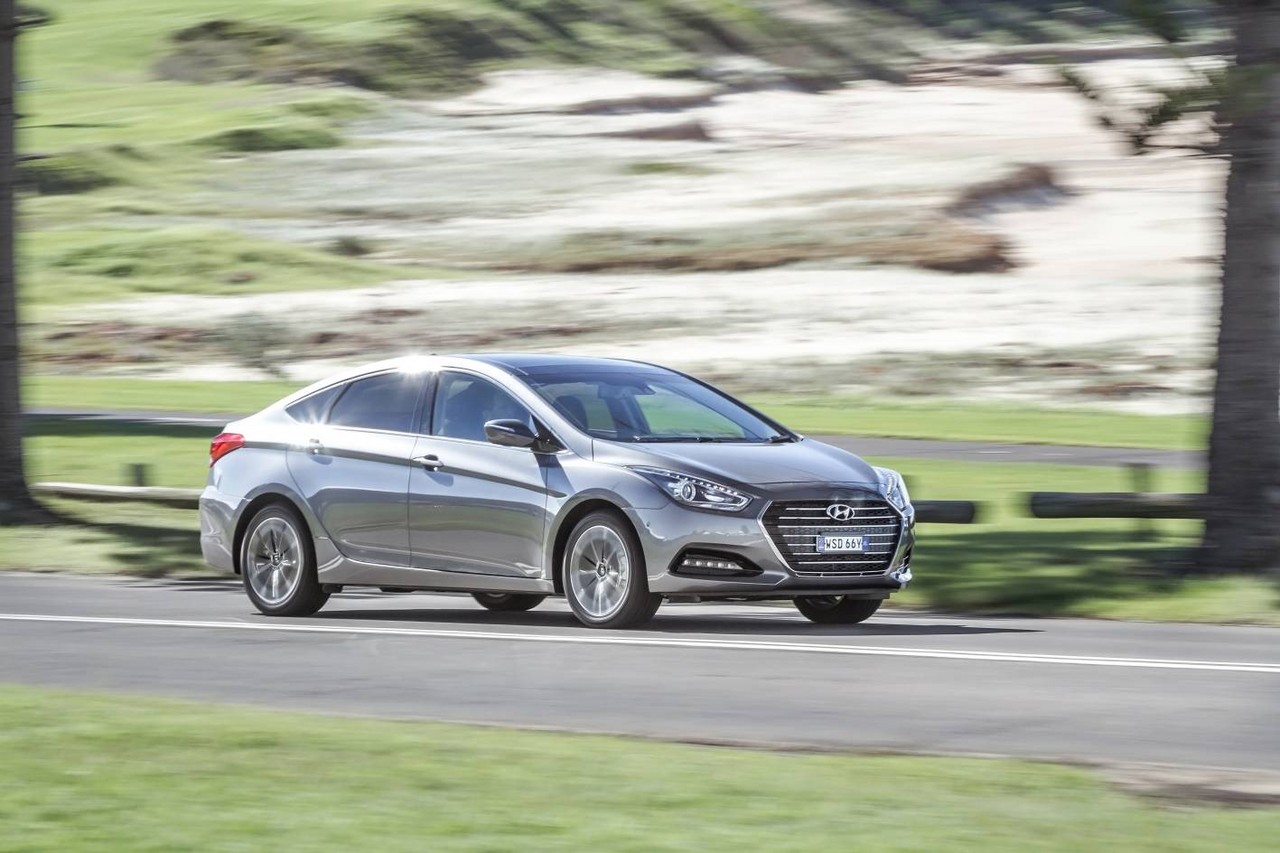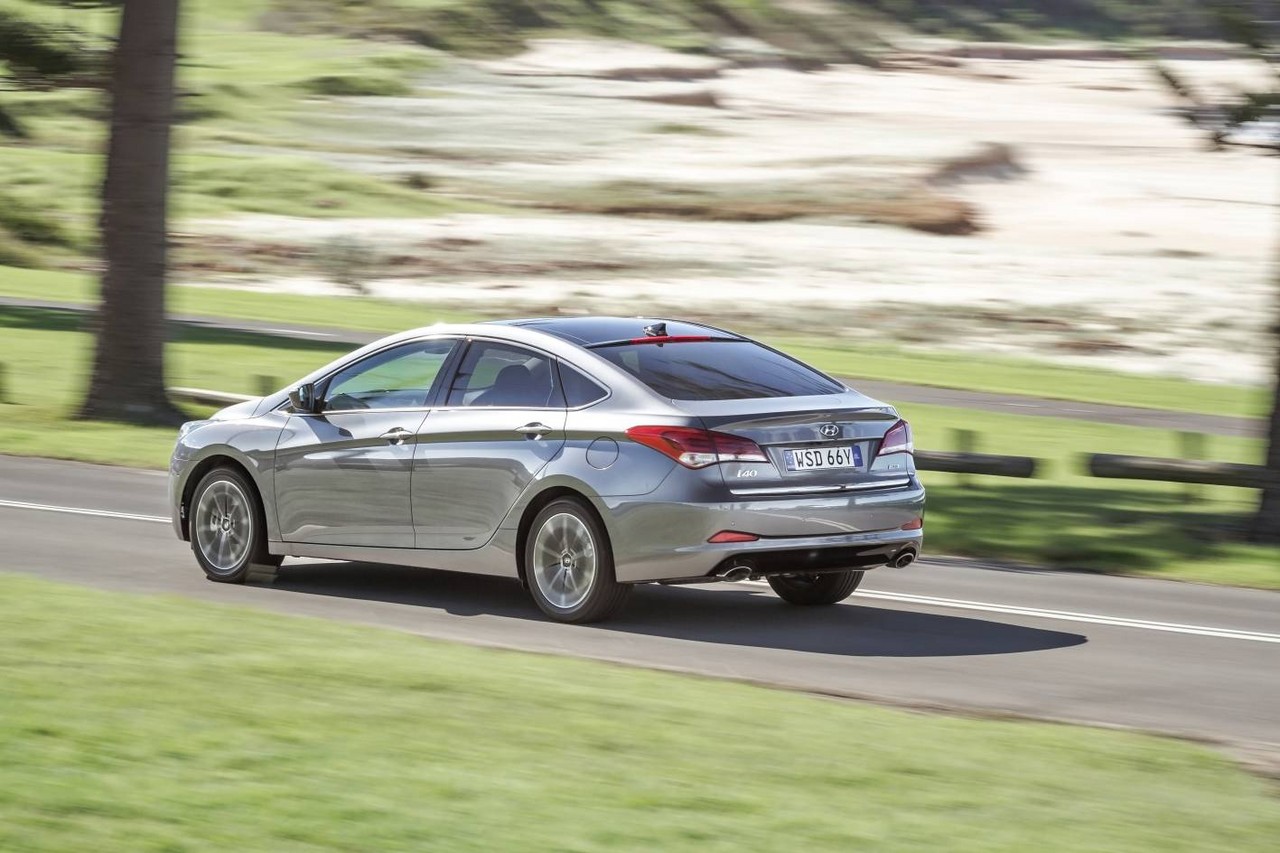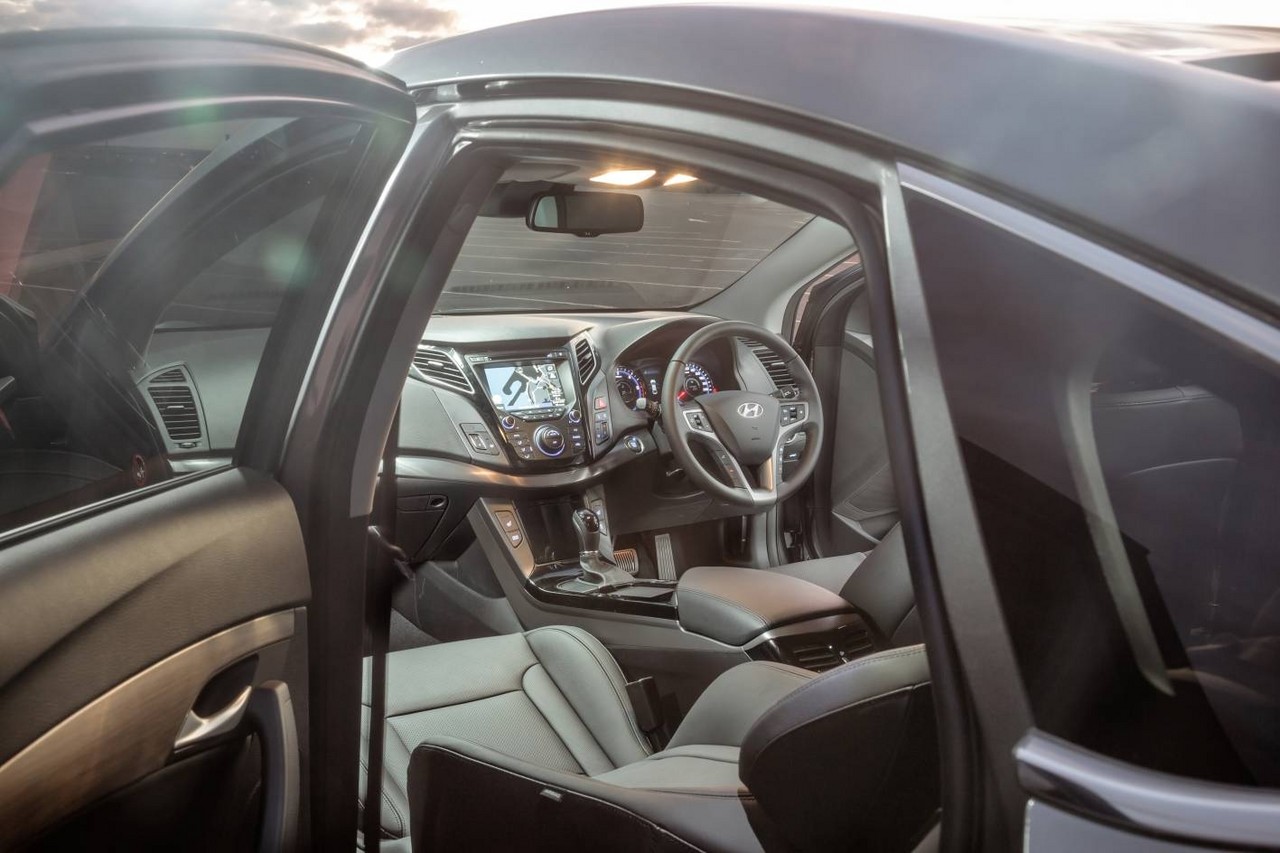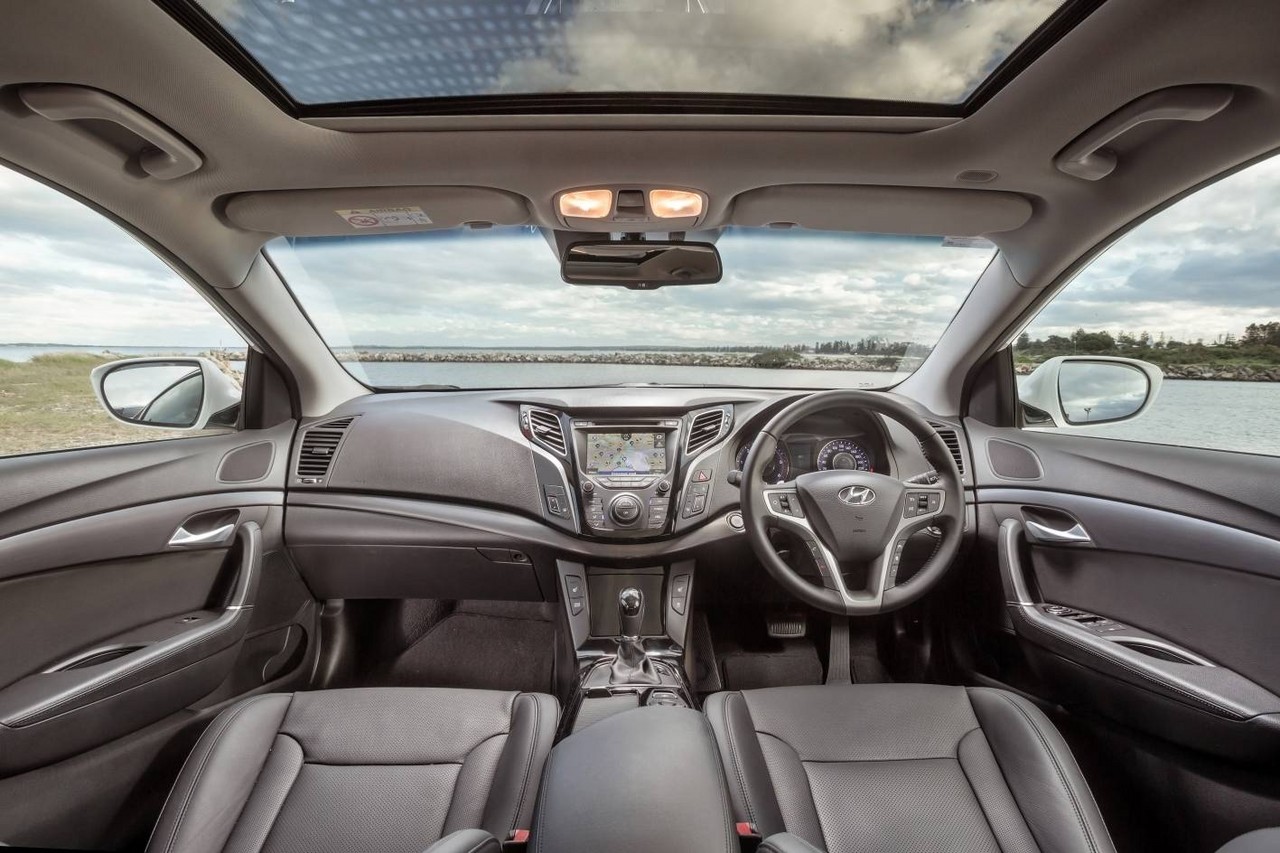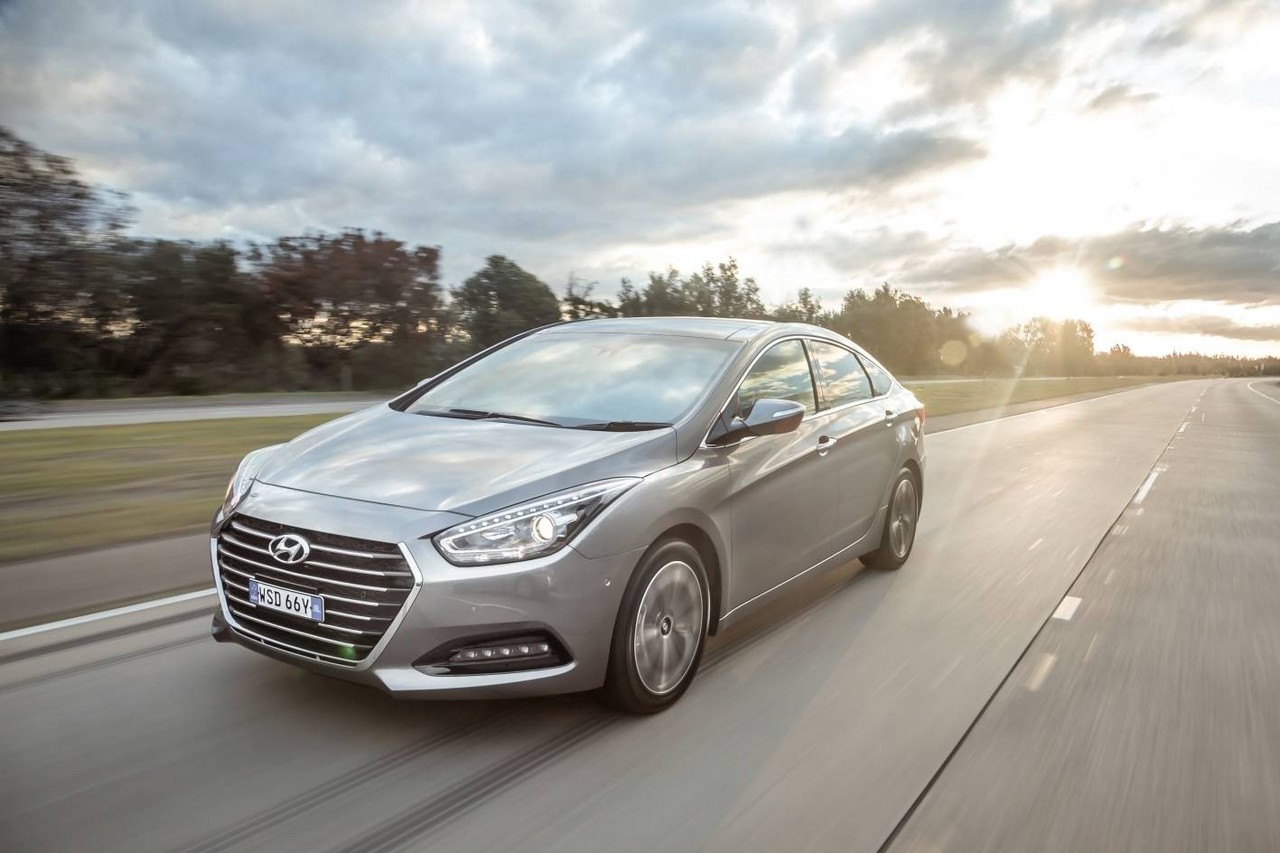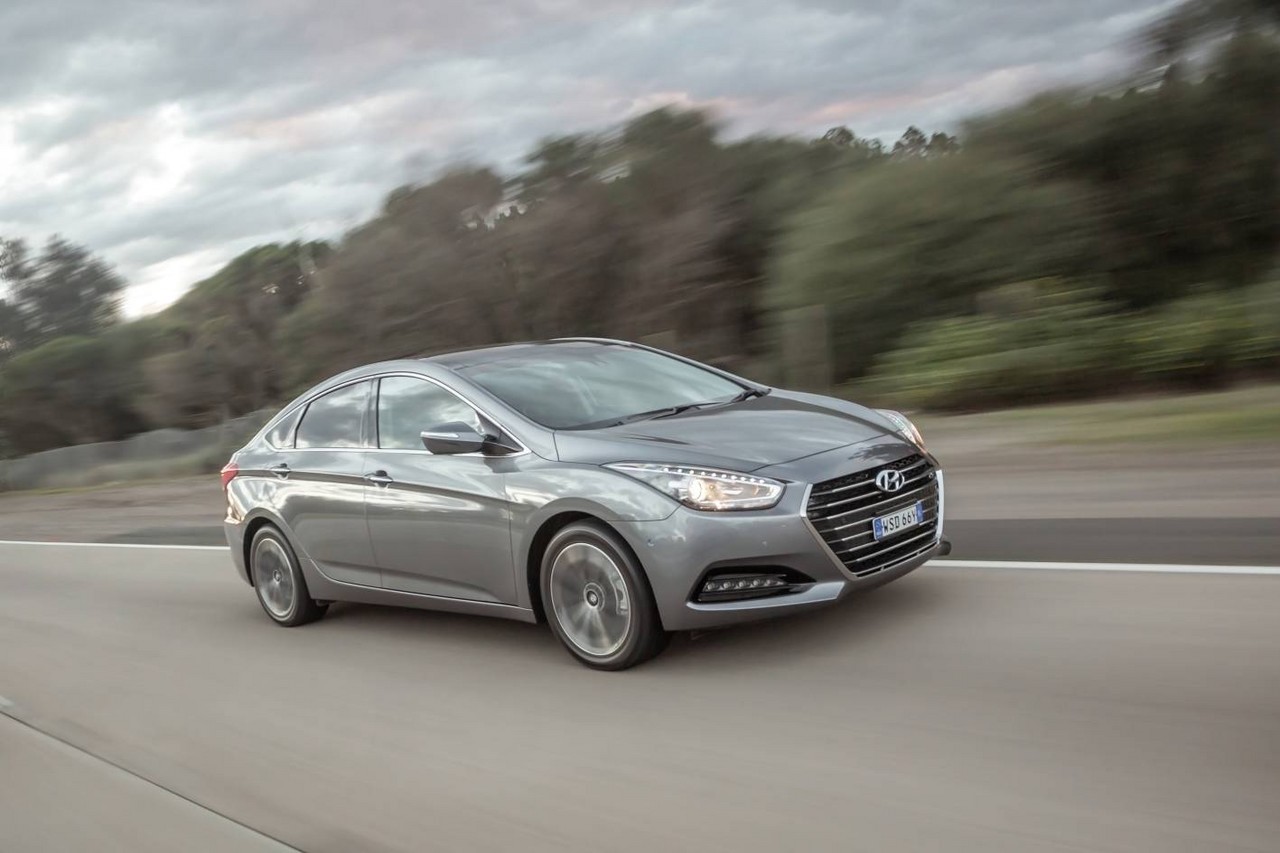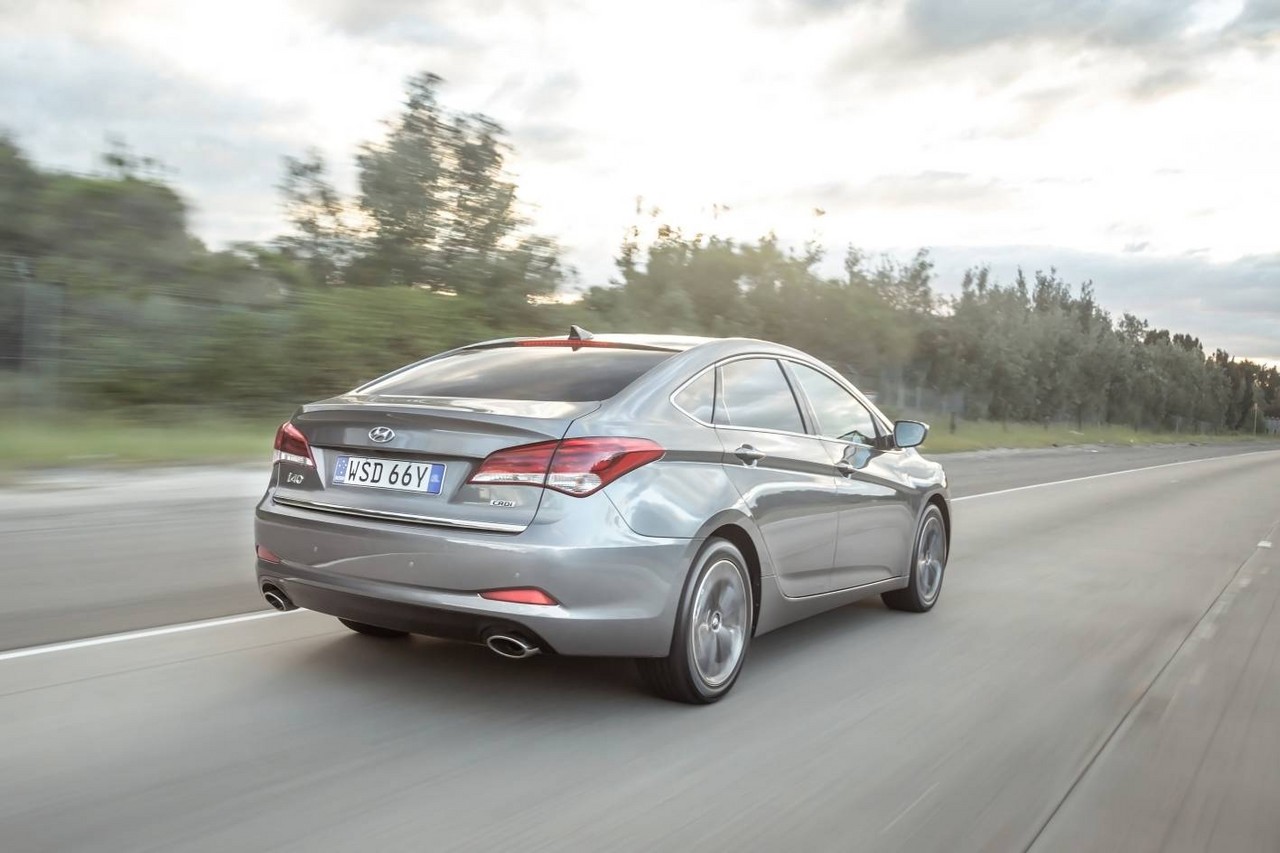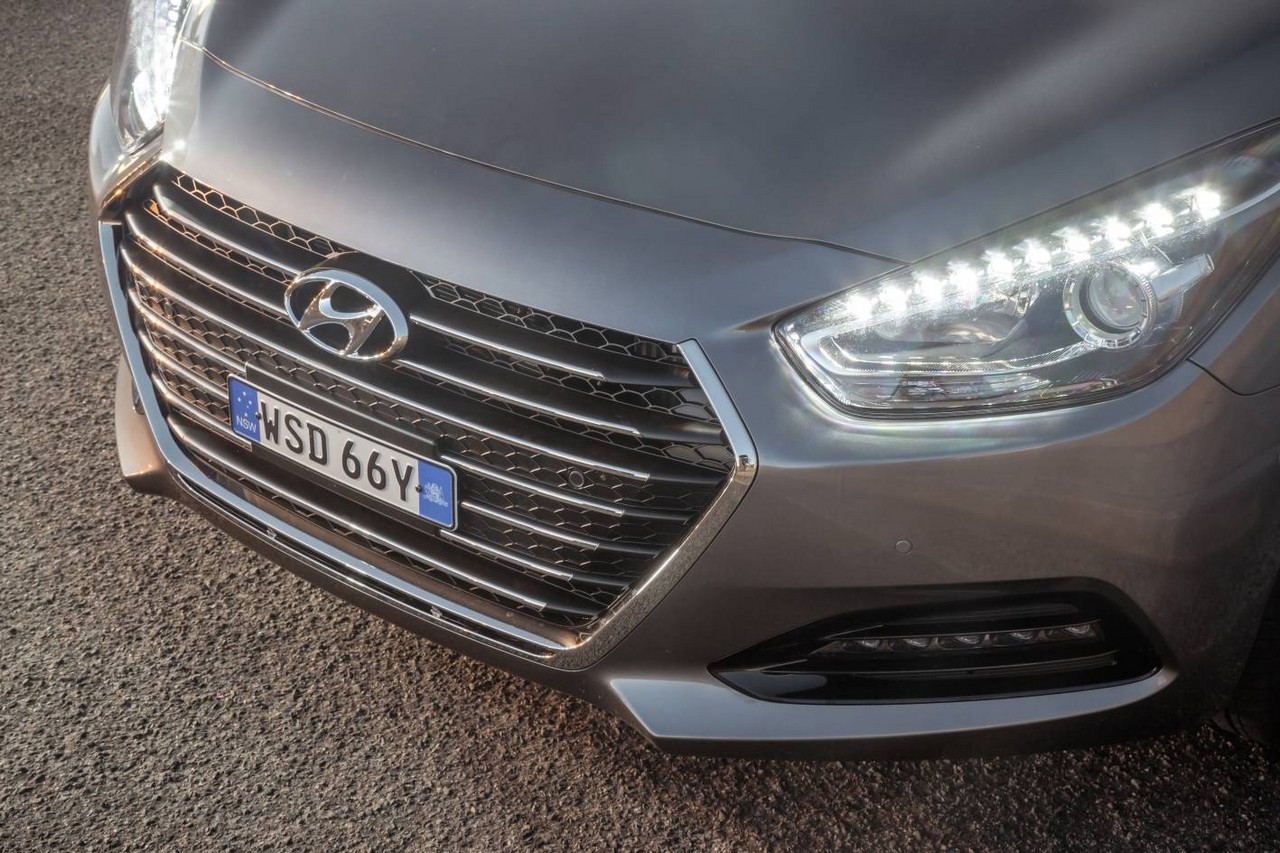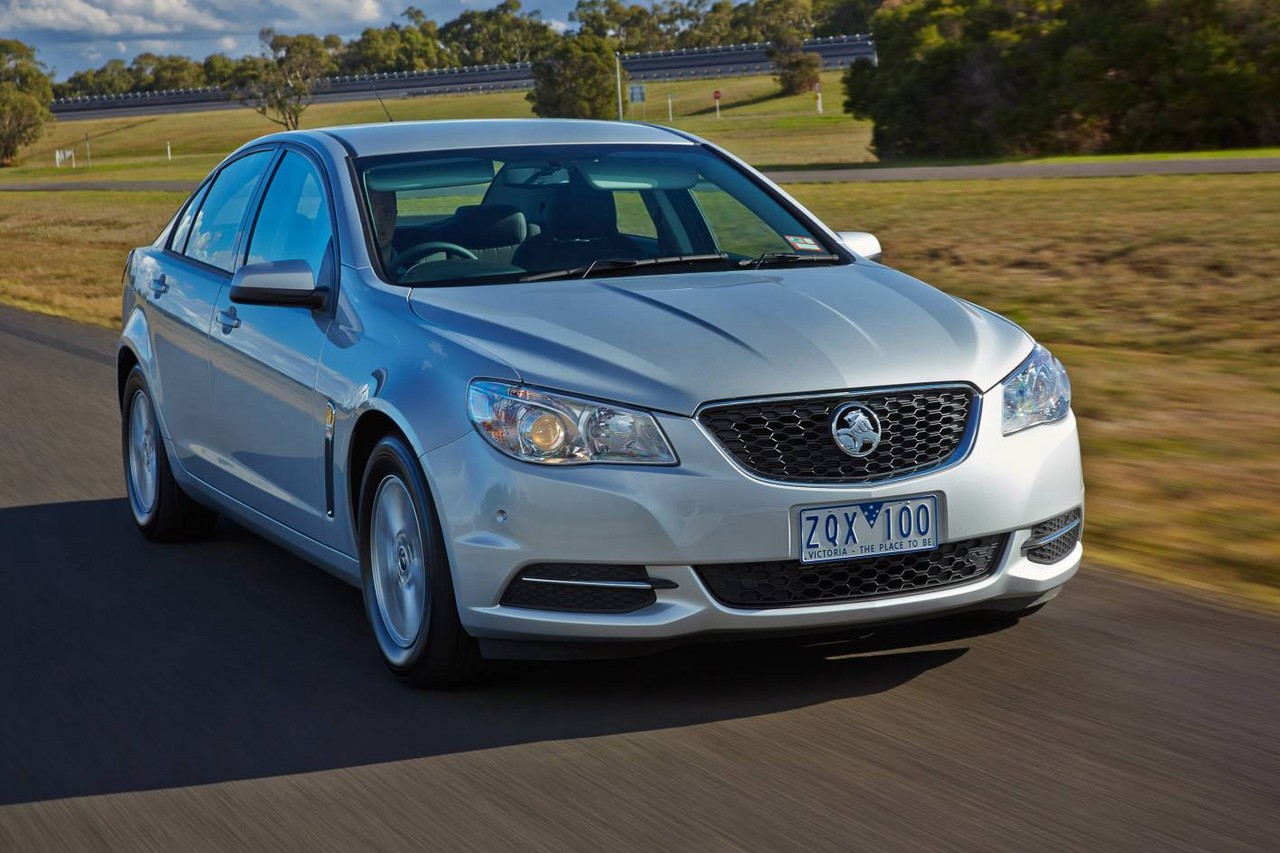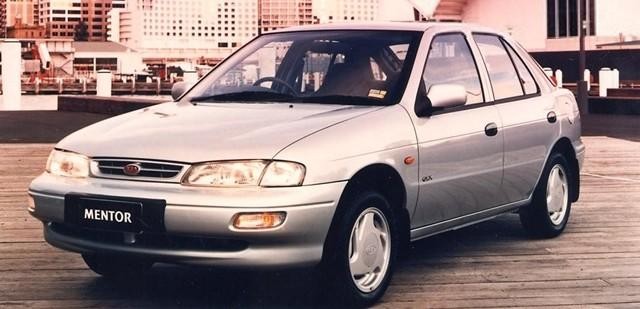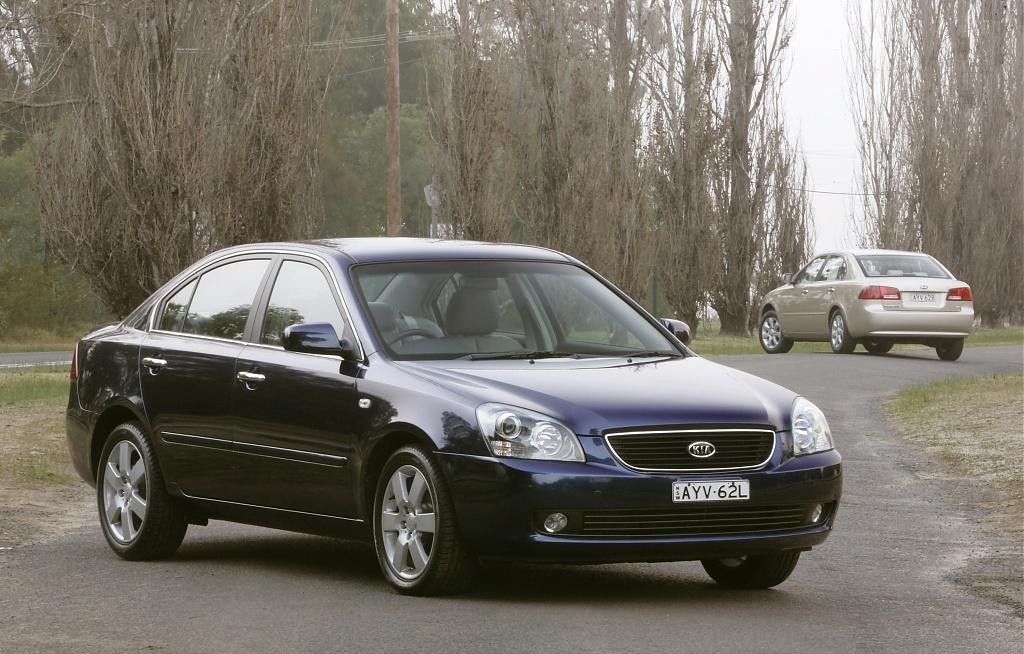
- Responsive turbo-diesel engine
- Decent ride/handling balance
- Steering lacks feel
- Poor ride quality for i40 Premium
- Limited rear seat headroom
- DCT can be hesitant on take-off
Review: Hyundai VF.I i40 Sedan (2012-15)
Overview
Released in June 2012, the Hyundai VF i40 was a mid-size, front-wheel drive sedan (the i40 Tourer has been reviewed separately). Manufactured in Ulsan, South Korea, the VF i40 was powered by 1.7-litre turbo-diesel and 2.0-litre petrol engines. Both engines were available with six-speed manual and automatic transmissions. Furthermore, the i40 was offered in Active, Elite and Premium editions (see table below).
D4FD and G4NC engines
Of the engines,
- For 1.7 CRDi variants, the 1.7-litre D4FD ‘U2’ turbo-diesel engine had a cast iron block, an aluminium cylinder head, common-rail injection (operating at 1800 bar), a variable geometry turbocharger, double overhead camshafts, four valves per cylinder and a compression ratio of 17.0:1; and,
- For 2.0 GDI variants, the 2.0-litre G4NC ‘Nu’ petrol engine had an aluminium cylinder block and head, direct fuel injection, double overhead camshafts, continuously variable intake and exhaust valve timing (D-CVVT), four valves per cylinder and a compression ratio of 11.5:1.
Dimensions
Compared to the mid-size Hyundai YF i45 , the VF i40 was 80 mm shorter (4740 mm), 20 mm narrower (1815 mm), the same height (1470 mm) and had a 25 mm shorter wheelbase (2770 mm); boot space for the i40 was also slightly less at 505 litres, compared to 523 litres for the i45.
Suspension
The VF i40 had MacPherson strut front suspension and independent multi-link rear suspension (both with coil springs, gas-filled dampers and anti-roll bars).
| Variant | Engine | Editions | Trans. | Peak power | Peak torque |
|---|---|---|---|---|---|
| 1.7 CRDi | 1.7-litre turbo-diesel I4 | Active | 6sp man., 6sp auto |
100 kW at 4000 rpm | 330 Nm at 2000-2500 rpm |
| Elite, Premium |
6sp auto | 100 kW at 4000 rpm | 330 Nm at 2000-2500 rpm | ||
| 2.0 GDi | 2.0-litre petrol I4 | Active | 6sp man., 6sp auto |
130 kW at 6500 rpm | 213 Nm at 4700 rpm |
| Elite, Premium |
6sp auto | 130 kW at 6500 rpm | 213 Nm at 4700 rpm |
Safety equipment
Standard safety equipment for the i40 included dual front airbags, a driver’s knee airbag, front and rear side airbags, full-length curtain airbags (i.e. for front and rear occupants), ABS, electronic brake force distribution, brake assist, electronic stability control, cornering brake control, traction control, active front seat head restraints and front seatbelts with pretensioners and load limiters.
From March 2013, the i40 Premium was equipped with a ‘Lane Departure Warning & Assist’ system. Using a windshield-mounted front camera, the system could be engaged at speeds over 60 km/h. If the system detected that the vehicle was drifting from the marked lane without indicating, an audible warning would sound to alert the driver and a visual warning would be displayed. If the vehicle was about to depart from the marked lane, the system would automatically steer the vehicle towards the centre of the lane.
As standard, the i40 was also fitted with:
- Hill-start assist;
- An ‘Emergency Stop Signal’ which would flash the rear brake lights during emergency braking situations to worn following traffic; and,
- Hyundai’s Vehicle Stability Management (VSM) system which could apply counter-steering assistance to guide the driver to the correct steering direction in the event that the driver reacted too slowly or tried to steer in the incorrect direction to maintain vehicle control.
Brakes
The Hyundai i40 Active sedan had 300 mm by 28 mm vented front brake discs and 284 mm by 10 mm solid rear discs. The i40 Premium and Elite, however, had 320 mm by 28 mm vented front brake discs and 300 mm by 10 mm solid rear discs.
Euro NCAP testing
In Euro NCAP testing , the i40 Tourer was awarded a five star safety rating with a 92 per cent adult occupant protection rating and an 86 per cent child occupant protection rating. ANCAP extended the crash test results of the i40 Tourer to the sedan and, under ANCAP’s methodology , this testing resulted in a five star adult occupant protection rating with a score of 34.18 out of 37. In the offset crash test, there was a slight risk of serious chest and leg injury for the driver. In the side impact and pole tests, however, maximum points were awarded.
Features: i40 Active, Elite and Premium
Standard features for the i40 Active included 16-inch alloy wheels, a six speaker sound system with CD player, auxiliary inputs (3.5mm/USB/iPod) and MP3/WMA-compatibility, air conditioning, cruise control, daytime LED running lights, automatic headlights, Bluetooth connectivity, front and rear parking sensors, 60/40 split and folding rear seats, a multi-function steering wheel (audio, cruise and phone controls), remote central locking, power windows and heated door mirrors, manual folding door mirrors, tilt and telescopic steering wheel adjustment, a power-operated park brake, height adjustable driver’s seat, 12 volt power outlet, courtesy lamps, a trip computer and an immobiliser. Models with automatic transmissions were also fitted with steering wheel gearshift paddles.
The i40 Elite was further equipped with 17-inch alloy wheels, a six-disc in-dash CD player with an additional amplifier and woofer, satellite navigation with SUNA live traffic updates and a seven-inch touch screen, dual-zone climate control air conditioning, a cooled glovebox, a ten-way power adjustable driver’s seat, front fog lights, rain-sensing wipers, a rear view camera, proximity key with push-button start, electrochromatic rear view mirror, height adjustable front passenger seat, cargo blind and luggage rails.
The i40 Premium was distinguished by its 18-inch alloy wheels, ventilated front seats, leather/leatherette seats, driver’s seat memory settings, a power adjustable front passenger seat, heated front and rear seats, directional high intensity discharge (HID) headlights with washers, 4.2-inch TFT LCD display, power folding door mirrors, a panoramic glass sunroof, tinted rear privacy glass and stainless steel sill plates.
March 2013: Smart Parking Assist for i40 Premium
From March 2013, the i40 Premium was equipped with a ‘Smart Parking Assist’ system which provided semi-automated reverse parallel parking. Using side-mounted ultrasonic sensors, the park assist system could be activated at speeds of up to 30 km/h and, once a parking space was selected, would prompt the driver to engage reverse gear. The parking assistant would then steer the vehicle into the parking space while the driver controlled the accelerator and brake (while monitoring the vehicle’s movements via the reverse camera display). If the parking space was too small for a single parking action, the driver would be prompted to engage forward and reverse gears to complete the process. As a result of the introduction of Lane Departure Warning & Assist and Smart Parking Assist, Premium variants were also fitted with a 4.2-inch colour LCD ‘Supervision Cluster’.
January 2014 update: Drive Mode Select
From January 2014, the YF i40 was fitted with Hyundai’s ‘Drive Mode Select’ system which enabled the driver to select from Eco, Normal and Sports modes – via a centre console switch – for specific transmission programming and steering weight settings.
Cosmetic changes for the 2014 i40 included dark silver metallic finishes for the 17- and 18-inch alloy wheels (for Elite and Premium editions, respectively) with a revised design for the former.
Brochure
Specifications
- Specifications: Hyundai VF i40 (June 2012)
- Specifications: Hyundai VF i40 and i40 Tourer (April 2013)
- Specifications: Hyundai VF i40 and i40 Tourer (March 2014)
Related links
- Press release: Hyundai VF i40 Sedan (June 2012)
- Press release: Hyundai VF i40 Sedan and Tourer – updates (November 2012)
- Press release: Hyundai VF i40 Sedan and Tourer – Premium updates (March 2013)
- Press release: Hyundai VF i40 Sedan and Tourer – updates (January 2014)
Review: Hyundai VF.II i40 Sedan (2015-19)
Overview
Released in June 2015, the Hyundai VF Series II (VF.II) i40 sedan introduced a revised range as the petrol engine and manual transmission were withdrawn and Elite variants were discontinued. As such, the VF.II i40 sedan was solely available with a turbo-diesel engine which was updated for greater power, while its compression ratio was lowered to 15.7:1. As standard, the engine was mated to a seven-speed double clutch transmission (DCT).
The VF.II i40 sedan could be identified by its re-sculpted front bonnet, more aggressive front grille (with matte-black horizontal slats and contrasting chrome inserts), U-shaped chrome grille surround, projector-beam headlights with blacked-out headlight housings, redesigned LED daytime running lights and new LED tail-lights. For the i40 Premium, there were new LED fog lights which had five individual LED lighting elements.
Inside, the dot matrix audio display for the i40 Active was replaced by a 4.3-inch touch screen, while audio systems for both variants was upgraded to include digital iPod connectivity (previously analogue) and a media ripping/storage facility. A rear armrest storage box with flip-up cover was also fitted as standard.
The VF.II i40 introduced revised suspension which included a narrower front stabiliser bar. Furthermore, the 16-bit motor-driven power steering system was replaced by a 32-bit system.
| Variant | Engine | Edition | Trans. | Peak power | Peak torque |
|---|---|---|---|---|---|
| 1.7 CRDi | 1.7-litre turbo-diesel I4 | Active, Premium |
7sp DCT | 104 kW at 4000 rpm | 340 Nm at 1750-2500 rpm |
Safety equipment
Compared to its VF.I predecessor, standard safety equipment for the VF.II i40 Sedan was unchanged.
Features: i40 Active and Premium
Standard features for the i40 Active included a six speaker sound system with a 4.3-inch central monitor, CD player, MP3 and digital iPod compatibility, auxiliary inputs (3.5 mm/USB), media ripping and storage capability, air conditioning, cloth seats, cruise control, LED daytime running lights, rear view camera, front and rear parking sensors, automatic headlights, a ‘premium’ steering wheel and gear knob, steering wheel gearshift paddles, 60:40 split and folding rear seats, remote central locking, power windows, power adjustable and heated mirrors, tilt and telescopic steering column adjustment, a height adjustable driver’s seat, illuminated front vanity mirrors, three 12 volt power outlets, ambient lighting, front courtesy lamps, a trip computer, an alarm and immobiliser.
The i40 Premium was further equipped with a seven speaker sound system with external amplifier, satellite navigation with a 7.0-inch display and three year ‘Here MapCare’ subscription, dual-zone climate control air conditioning, leather appointed seats, a ten-way power adjustable driver’s seat, heated front seats, a cooled glovebox, LED front fog lamps, rain-sensing wipers, proximity key, push-button start, a height adjustable front passenger’s seat, a panoramic glass sunroof, rear privacy glass, an electrochromatic rear view mirror, a 4.2-inch LCD within the instrument cluster, a digital speedometer and a luggage net.
As per the March 2013 update, the i40 Sedan Premium continued to be fitted with Hyundai’s ‘Smart Parking Assist’ (described above).
Specifications
Related links
